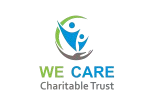Definition
Intellectual Developmental Disability (IDD) is a condition characterized by significant limitations in both intellectual functioning and adaptive behavior, originating before the age of 18.
Prevalence
Approximately 1% of the global population has IDD (WHO, 2019)
Types
- Mild IDD: IQ 50–69
- Moderate IDD: IQ 35–49
- Severe IDD: IQ 20–34
- Profound IDD: IQ below 20
Characteristics
- Intellectual impairment
- Adaptive behavior deficits
- Communication difficulties
- Social skills challenges
- Limited daily living skills
Causes
- Genetic conditions (e.g., Down syndrome)
- Prenatal exposure to toxins
- Birth injuries or complications
- Infections (e.g., meningitis)
- Environmental factors (e.g., poverty, neglect)
Diagnosis
- Comprehensive psychological evaluation
- Adaptive behavior assessments (e.g., Vineland Adaptive Behavior Scales)
- Intellectual functioning tests (e.g., IQ tests)
- Medical evaluation
Interventions
- Early intervention and therapy
- Special education
- Occupational therapy
- Speech therapy
- Behavioral support
Om Sai Child Development Center’s Approach
- Multidisciplinary team (Psychology, OT, PT, Speech)
- Comprehensive assessment and diagnosis
- Individualized treatment plans
- Family-centered care and education
- Ongoing monitoring and adjustments
Strategies for Parents/Caregivers
- Encourage independence
- Foster social interactions
- Develop communication skills
- Provide emotional support
- Access community resources
Resources
- American Association on Intellectual and Developmental Disabilities (AAIDD)
- National Association of State Developmental Disabilities Directors (NASDDDS)
- World Health Organization (WHO)
Support and Accommodations
- Individualized Education Programs (IEPs)
- Section 504 Accommodations
- Home and Community-Based Services (HCBS)
- Respite care
- Support groups
Stages of IDD
- Infantile (0–3 years): developmental delays
- Toddlerhood (4–6 years): social and communication challenges
- Childhood (7–12 years): adaptive behavior deficits
- Adolescence (13–18 years): transition planning
- Adulthood: supported employment and independent living
Note: Every individual with IDD is unique, and the severity and impact of symptoms vary widely.
